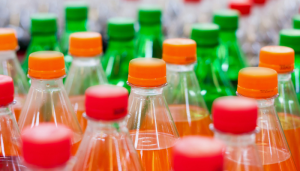A group of civil society organisations (CSOs) as well as environment and health officials who met recently to examine issues related to the sugar-sweetened beverages (SSB) tax has suggested that the tax should be key on the agenda of the National Council on Health.

At a one-day Regional Stakeholders Forum on SSB Tax convened by the Corporate Accountability and Public Participation Africa (CAPPA) and the National Sugar Sweetened Beverages (SSB) Tax Coalition with support from the Global Health Advocacy Incubator (GHAI) on Thursday, August 17, 2023, in Enugu, Enugu State, participants called for adequate and sustained collaboration by government at state and federal levels spearheaded by the Ministry of Health to engender public awareness on the health risks associated with SSB consumption and the benefits of the SSBs tax policy.
The pointed out that relevant stakeholders, including traditional institutions, educational institutions, civil society organisations, the media, and healthcare providers should be actively engaged and recruited into the campaign to address the SSB menace. They should also be at the fore of correcting industry misinformation on SSB tax. Local communities must not be left out of these processes, the delegates added.
The want the Federal Government to work in collaboration with the state governments to expand the coverage of taxes to include other sugar-sweetened beverages that are currently not taxed as precursor to earmarking such taxes to support and strengthen public health systems in Nigeria.
While calling on government to increase taxation on SSBs towards achieving a 20% increase in the final retail price of targeted sugary drinks as recommended by WHO, the forum underlined the need for the establishment of an effective transparent monitoring, evaluation and accountability framework to track the implementation and impact of the current SSB tax policy. This, they added, must be reviewed periodically.
In a communique released at the end of the event, the gather further recommended:
- Need for complementary regulatory instruments like Front-of-Pack Labelling, restricting availability and marketing of SSBs in school environments among others.
- Need for government to ensure healthier alternatives to SSBs are affordable and readily available.
- There is a need for national legislation that advocates for the imposition of a pro-health tax. It is strongly advocated that the Federal Ministry of Health spearheads this initiative.
- The Federal Government and regulatory authorities should design and enforce penalties for companies that default on SSB tax obligations.
- Government should ensure periodic review of the SSB tax which is indexed on inflation.
- Stakeholders should conduct further research and studies on the impact of SSBs consumption and taxation in Nigeria to inform evidence-based policymaking and intervention strategies.
- Encourage the Ministry of Agriculture to put in place policies and interventions in collaboration with research institutes that support farmers and fresh fruits industry to grow more fruits and produce healthy drinks as a replacement for unhealthy drinks.
- Encourage parents to prioritise what their wards consume and particularly benefits of consuming products that do not contain SSBs.
- Need for behavioural change education to complement the SSB Tax policy. In doing this, local demographics must be taken into cognisance.
- More exposure of the media to verifiable sources of information on SSB, SSB taxes and industry activities aimed at thwarting the regulation of their products.
While welcoming the participants, Permanent secretary at the Ministry of Health, Enugu State, Dr. Ifeanyi Agujiobi, said that the forum is timely in view of the dangers of SSBs to consumers in every part of the country.
In his welcome words, CAPPA Executive Director, Akinbode Oluwafemi, said that the forum is the fourth in the series, as similar convergences have held in Lagos representing the South-West, Bayelsa in the South-South region and Kaduna in the North-West of Nigeria where CAPPA equally met with commissioners of health and other critical stakeholders to discussing SSB tax.
Participants discussed a host of issues including the rationale behind the N10 Excise Tax on all non-alcoholic, sugar-sweetened carbonated beverages introduced by the Federal Government via the 2021 Finance Act as well as the soft drinks industry misrepresentation of tax as a proven solution to the alarming consumption of SSBs.
The Federal Government was commended for retaining the N10 per litre of SSB tax in the Finance Act 2023 and urged to increase the tax to a minimum of 20% of the final retail price which is the global standard.
Participants also discussed the need to deepen conversations on improving public health through reduction in the consumption of SSBs and the need for a more sustainable tax regime on SSBs in Nigeria.
The forum had representatives of the Ministries of Health and Environment from Abia, Anambra, Ebonyi, Enugu and Imo states, as well as health experts, civil society organisations and the media in attendance.
